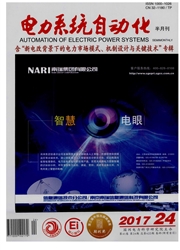

 中文摘要:
中文摘要:
大力发展新能源可以解决传统能源面临的能源供应和环境问题。为了有效指导新能源的规划与建设,建立新能源接入经济性评估模型。该评估模型首先从定量与定性角度梳理出新能源接入经济效益评估指标体系和社会效益评估指标体系,然后分别采用生命周期成本理论、层次分析与模糊综合评估法进行定量与定性指标的评估。最后通过工程实例进行评估分析,验证了该评估模型与方法的有效性。
 英文摘要:
英文摘要:
Developing alternative energy can solve energy supply and environmental problems faced by traditional energy sources. In order to guide the planning and construction of the alternative energy effectively, the economic evaluation model of grid-connected alternative energy is built. Economic and social benefits evaluation index system is established from the point of quantitative and qualitative aspects firstly, then life-cycle cost theory as well as analytical hierarchy process and fuzzy comprehensive evaluation method is used to assess quantitative and qualitative indicators. At last, the evaluation model and method is verified and analyzed through analyzing engineering projects.
 同期刊论文项目
同期刊论文项目
 同项目期刊论文
同项目期刊论文
 期刊信息
期刊信息
